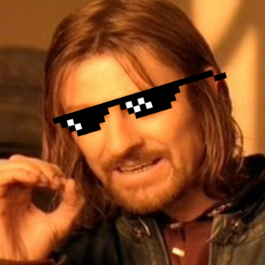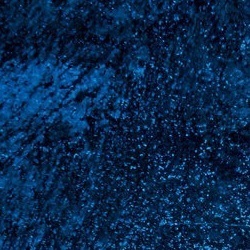“Snacks”…
[Morty:] What am I eating?
[Bird person:] It’s mostly debris I found in my carpet. I don’t know what humans eat.
[Tammy, his girlfriend:] You know what this human eats.
Don’t be gross, Tammy.
Fuck Tammy
Birdperson: Ok.
Imagine sitting around thinking about hobbit dick all day. Like…idk if you’re failing or winning hardcore…
Pervy hobbit fancier.
now that was literature!
“Are you a man or a woman?”
“I’m a Hobbit.”
“What gender are you?”
“Hungry.”
“Yeah, but what’s in your pants?”
“FOOOOOD!”
Luckily the words “male”, “female” and “non-binary” exist
Never ask a Hobbit what they got in their pocketses. Bad time will be had by all.
They literally use men to refer to the entire race of humans multiple times…
Literally call it the race of men/man several times. Does that technically make Eowyn genderfluid or just paradoxical since she is both a man in the sense of race but also states herself that she isn’t a man?
Racial fluid?
We’re onto something big here
The race of men is capitalised, so man=male and Man=the race.
‘Hinder me? Thou fool. No living man may hinder me!’ Then Merry heard of all sounds in that hour the strangest. It seemed that Dernhelm laughed, and the clear voice was like the ring of steel. ‘But no living man am I! You look upon a woman. Éowyn I am, Éomund’s daughter. You stand between me and my lord and kin. Begone, if you be not deathless! For living or dark undead, I will smite you, if you touch him´
Notice the lack of capitalisation in Witch-King’s quote
The “werman” counterpart to “woman” would have been really useful for writing fantasy stories with multiple sapient species if it had ever been used. Or if we all started using it now.
I mean, one of the more quoted lines in LOTR is a human woman telling the Nazgul Witch King “I am no … man.” The film quote is shorter and more direct but the book still has Eowyn telling the witch kind she isn’t a man. So there are men and women but also man is used to describe humans.
Just like regular Earth human English!
like modern English.
I don’t know if you’re implying that those haven’t been used interchangeably for a very long time or not. Regardless, I’ll say it’s super old. Man refers to any human. Mankind is humanity. We also say man and woman for gender, which is also super old.
I’m saying that before modern English, we used were and wyf for man and woman.
Modern English is everything from the late 17th century Great Vowel Shift onward. Blame linguists.
Yeah, I hate the word “modern”. It’s about a 50/50 that it’s being used to say “now” or being used in a technical sense, which is referring to something that really isn’t modern anymore. I hope everyone has learned their lesson that time moves on past them and not to use “modern” as part of a name for anything. The fact that “post-modern” is often used to describe things that aren’t even new anymore makes it even worse.
TL;DR penny-anna is wrong, man/men refers to males, not the race
Tolkien capitalise the m when speaking of the race Men. “Man” refers to the race of full sized humans and “man” refers to a male.
Chapter Treebeard:
‘We always seem to have got left out of the old lists, and the old stories,’ said Merry. ‘Yet we’ve been about for quite a long time. We’re hobbits.’ ‘Why not make a new line?’ said Pippin. ‘Half-grown hobbits, the hole-dwellers. Put us in amongst the four, next to Man and you’ve got it.’
Man is capitalised as they speak about the race of men
Chapter Shelob’s lair:
But that desire was yet far away, and long now had she been hungry, lurking in her den, while the power of Sauron grew, and light and living things forsook his borders; and the city in the valley was dead, and no Elf or Man came near, only the unhappy Orcs.
Again, they speak of the race
Chapter The Battle of Pelennor Fields (Witch-King speaks of his prophecy):
Hinder me? Thou fool. No living man may hinder me!
Man is not capitalised as the prophecy was about males, not the race of men, which is a category Éowyn would have fallen into.
As summarised in the 50th anniversary edition :
… The result, nonetheless, still includes many variations in capitalization, punctuation, and other points of style. Not all of these are erroneous: they include words such as Sun, Moon, Hobbit, and Man (or sun, moon, hobbit, man), which may change form according to meaning or application, in relation to adjacent adjectives, or whether Tolkien intended personification, poetry, or emphasis. His intent cannot be divined with confidence in every case. But it is possible to discern Tolkien’s preferences in many instances, from statements he wrote in his check copies of The Lord of the Rings or from a close analysis of its text in manuscript, typescript, proof, and print. Whenever there has been any doubt whatsoever as to the author’s intentions, the text has been allowed to stand.
Second lunch.




